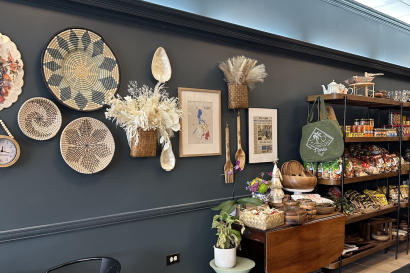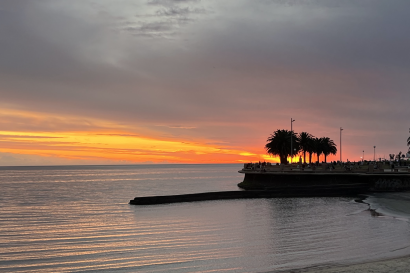
Am I an impostor?
I love my internship with Fundación Chile 21, a progressive think tank, but sometimes I feel underqualified for the assignments given to me. I'm responsible for writing both short and long analyses of international events for foundation directors, in Spanish no less, and I'm eager and anxious to deliver the quality and complexity of insight I admire so much in previous publications by Chile 21. I just finished my first year in college, and although I've learned a lot about Latin America and the world, it takes more than two semesters of classes to understand the many histories and political narratives of this region. As a result, my internship hours have become a fast-paced, self-led course on all things Latin America: I often spend hours researching the historical context, current impact, and future implications of a single event in order to craft a brief one-paragraph summary that is balanced and nuanced, yet concise, all in my second language. I now know a succession of current and former political leaders and their accomplishments and criticisms for most countries in Latin America, and I'm acquiring a depth and breadth of knowledge that makes reporting on new events easier. But sometimes, I still feel like an impostor, trying my hand at a job I love but for which I'm underqualified.
The first time I heard the phrase "Impostor Syndrome" was at a university-sponsored event about failure, led by a panel of highly successful graduate students, community leaders, and business people. As they described it in terms half-joking but half-serious, Impostor Syndrome is the sense of self-doubt some people may feel despite their accomplishments or best efforts. I knew the feeling, and I was relieved to know that I wasn't alone, that there were other people, experienced professionals, who felt similarly. And I was happy that my self-doubt had a name, that feeling like an impostor was a "syndrome", not the reality.
Despite my progress in all things Chilean, I still struggle with Impostor Syndrome. I learned the public transportation system, the dress code, a second language, and a tome of Latin American history, politics, culture, and economics. I've found so much support from my family and from my friends all over the world. I've found a mentor in Maricarmen, the IES Abroad Santiago director who reviews my Spanish before I turn in internship assignments and never fails to ask how I'm doing or offer advice and encouragement. My Chilean colleagues are also super supportive with language help, political questions, and friendly conversation.
But I would be remiss to leave out a major contributor to my Impostor Syndrome here in Santiago: an American graduate student from another study abroad agency who started an internship with Chile 21 the same day I did. We work together on reports twice a week, but we have major differences in work style and professional conduct. Since the beginning, it has seemed like she talks down to me, seemingly accusing me of not knowing basic knowledge required in our field. Meanwhile, when I review the joint report we work on together, I often find myself correcting her elementary Spanish grammar mistakes and filling in the gaps in her overly-simplistic analyses. At times, she can be the embodiment of Impostor Syndrome, her condescension reinforcing my existing insecurities. But I've also learned how to politely and professionally assert myself and my qualifications, proving both her and my Impostor Syndrome wrong.
At the end of the business day, and more than halfway through my internship, I've come to realize that this was never supposed to be easy. This, what I signed myself up to do, what I’m trying to do, this living and working abroad day-in and day-out dream, this is hard. It's difficult, tiring, and not always glamorous. But I'm doing what’s hard and learning to do it well, and everyday I'm closer to who I wanted to become when I put myself up to this challenge.
I'm no impostor.

Megan Rutkai
<p>Hey there, my name is Megan! I'm from a rural suburb south of Annapolis, Maryland, and like many Annapolitans, I love sailing, summer, and being on the water. When I'm not in my quiet hometown, I'm enjoying (and adjusting to) city life in Baltimore, studying International Studies and Sociology in my first year at Johns Hopkins. This summer, I'll be living and working in a city a bit farther from home: Santiago, Chile!</p>








